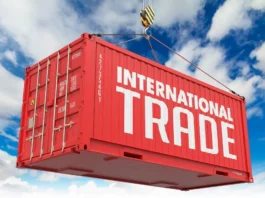
In 1958, a brilliant young mathematician named Benoit Mandelbrot went to work as a researcher for IBM. His first assignment seemed like a straightforward problem, but turned out to be devilishly complex. He was tasked with figuring out how noise in communication lines arises and identifying some way of minimizing it.
His solution was simple but ingenious. He realized that there was not one type of effect at play but two. The first, which he called “Joseph effects,” after the biblical story about seven good years and seven bad years, was predictable. The second, which he termed “Noah effects”, was chaotic and unpredictable.
He soon found that these two effects were present in more than communication lines, but in everything from the flooding of the Nile River to crashes in financial markets and they play havoc with our ability to see the future. Even more importantly, they can help us navigate an increasingly volatile, uncertain and complex business environment and survive for the long-term
How Google leveraged Joseph Effects To Build The World’s Most Popular Email Service
By 2004, Google was already was already dominant in its category and hugely profitable. Handling almost 90% of all Internet searches, it had recently went public at a valuation of over $20 billion (which was big money before back then). After just 5 years in business, the company seemed unstoppable.
However, it had a problem. People would go to Google, find what they were searching for and leave. While that was great for users, the company recognized that it could benefit from having people stick around for a while. The question: How could it increase the time that people spent on its platform without undermining the core search business?
It found the answer in Gmail, a new email service that Google launched with an offer few could refuse — 1GB of storage. That didn’t just one-up the competition; but completely changed the game, delivering literally hundreds of times the 2MB-4MB that the market leaders, Hotmail and Yahoo, were offering at the time.
Google was able to leapfrog the competition because it understood Joseph effects. With very few email users, 1 GB of storage would cost the competition much more than Google. While at the same time, with storage costs decreasing rapidly, the company’s leaders could safely predict that in the time it took for its user base to grow, 1GB of storage would be feasible.
By understanding the predictable continuity of Joseph effects, Google had scored a coup.
Why Microsoft and IBM Are Still Thriving Today
Every enterprise is, essentially, a square-peg business waiting for a round-hole world. As much as you analyze and plan, every strategic decision is essentially a coin flip. You do your best to narrow down the choices, but in the end you need to take a chance among several seemingly viable options.
Microsoft and IBM are primary examples of this principle. Both have been around for decades — over a century in IBM’s case — and have survived through multiple technology cycles. Most of their former competitors have either become irrelevant or gone out of business entirely, but these two still run profitable businesses with strong margins.
Perhaps not surprisingly, both have fallen prey to the discontinuities of Noah effects. Microsoft missed mobile — horribly — and more recently the shift from installed systems to the cloud has resulted in 20 straight quarters of revenue decline for IBM. Eventually, every business model fails.
Yet both are thriving in new technologies. Microsoft’s cloud business is growing 100% annually and IBM has leadership positions in both artificial intelligence and quantum computing.
By understanding the unpredictable discontinuities of Noah effects, Microsoft and IBM have managed to compete for the long term.
How Google Came To Embrace Noah Effects
As noted above, Google is a master of Joseph effects. For nearly two decades, it has dominated the search business and has leveraged its position to build other great businesses, like YouTube and the Android mobile operating system. It’s also incredibly profitable, with EBITDA over $30 billion and top line growth of more than 20%.
Yet its success in search is also its Achilles’ heel. Over 90% of the company’s revenues still come from advertising related to its core search business. Eventually, it will face the same problems that earlier tech giants like IBM and Microsoft did. What will become of Google when it can no longer make money on search?
Clearly, the company understands this and has embraced Noah effects. It regularly invites around 30 top researchers to spend a sabbatical year at Google, offering the world’s best technology and data sets for them to work with. It has also set up new organizational structures like its X division and and Verily to pursue opportunities unrelated to its core business.
None of these bets have paid off yet. So from the perspective of Joseph effects, they don’t make much sense. In terms of Noah effects though, it’s always better to build the ark before the the storm.
Not All Who Wander Are Lost
In 1993, IBM successful performed its now famous quantum teleportation experiment. Scientifically, it was a triumph, helping to finally disprove one of Einstein’s last theories. It did little, however, to benefit IBM as a company, which at the time was near bankruptcy. Many believed IBM was a relic from an earlier age and science experiments did little to change that perception.
Today, however, it’s beginning to pay off. As Moore’s Law is nearing its theoretical limits, the predictability of Joseph effects are giving way to the discontinuity of Noah effects and the need for new computing architectures is becoming increasingly dire. So IBM’s recent announcement of a 17 qubit quantum computer makes that early work seem like a really smart bet.
And that’s the dilemma every business finds itself in. We are judged — by both customers and investors — by how we are able to handle Joseph effects. We need to accurately predict what customers want, in what quantity, and deliver it. Get that wrong and you will pay a steep price.
Over the long haul, however, Noah effects become predominant and we have to prepare for a future that is impossible to see. That’s why, in the final analysis, it’s more important to explore than predict. We never know exactly what the flood will look like, but we can be absolutely sure that it will come.












